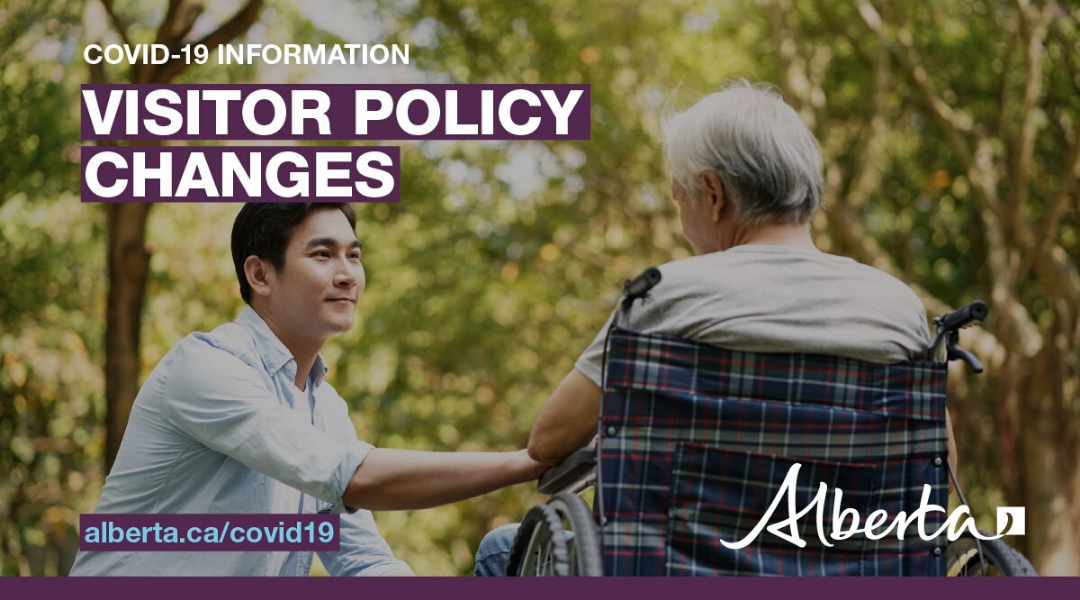May 4 at 4 p.m.
Recovered cases make up more than half of Alberta’s cases of COVID-19 at 2,942. Seventy new cases have been reported, bringing the total number to 5,836. Nine more Albertans have died.

Latest updates
- Cases have been identified in all zones across the province:
- 3,905 cases in the Calgary zone
- 1,085 cases in the South zone
- 503 cases in the Edmonton zone
- 221 cases in the North zone
- 89 cases in the Central zone
- 33 cases in zones yet to be confirmed
- Of these cases, there are currently 89 people in hospital, 21 of whom have been admitted to intensive care units (ICU).
- 733 cases are suspected of being community acquired.
- The total deaths are 104: 70 in the Calgary zone; 15 in the North zone; 12 in the Edmonton zone; six in the South zone; and one in the Central zone.
- To date, 621 cases have been confirmed at continuing care facilities, and 75 residents at these facilities have died.
- There have been 155,179 people tested for COVID-19 and a total of 164,722 tests performed by the lab. In the last 24 hours, 3,527 tests have been completed.
Strengthening care for nursing home residents
Changes to nursing home regulations will allow nurse practitioners to act as primary care providers in nursing homes during COVID-19, and enable nurse practitioners and other qualified health professionals to prescribe medication and other treatments in nursing homes, in accordance with their scopes of practice. Read the news release.
Resuming non-urgent surgeries and allied health services
- The province is ready to lift some restrictions on non-urgent scheduled day surgeries in regions where hospital and clinic capacity and the rate of new COVID-19 infections does not present a significant risk.
- The most urgent patients and those waiting the longest will receive care first. Alberta Health Services will contact patients on wait-lists to reschedule procedures.
- Independent regulated health professionals, such as chiropractors, physiotherapists, psychologists and other community providers (including optometrists, audiologists and dieticians), are also permitted to resume operations as long as they are able to follow Alberta Health guidance to limit transmission in these settings. Read the news release.
Albertans downloading tracer app
- The ABTraceTogether app will enhance current manual contact tracing and capacity, and facilitate early detection to help reduce the spread of the virus and better protect Albertans. It means Albertans will be contacted more quickly if they are at risk.
- Use of the app is voluntary; users must opt in.
- The app does not track the user’s physical location and does not use GPS. Protecting privacy is paramount; all contact data is only on the user’s phone and is deleted after 21 days.
- Secure contact tracing is a cornerstone of Alberta’s Relaunch Strategy. More information on the app, including links to download it, can be found online.
- Since its launch, the app has attracted more than 103,660 registered users.
- Technical issues with the registration code, experienced by some users, have been resolved.
Mental health supports
- Mental Health Week is May 4 to 10, an opportunity to promote positive mental health for everyone. The Canadian Mental Health Association has a variety of resources available at mentalhealthweek.ca.
- Confidential supports are available to help with mental health concerns. The Mental Health Help Line at 1-877-303-2642 and the Addiction Help Line at 1-866-332-2322 are available 24 hours a day, seven days a week.
- Online resources provide advice on handling stressful situations and ways to talk with children.
Family violence prevention
- A 24-hour Family Violence Information Line is available at 310-1818 to get anonymous help in more than 170 languages.
- Alberta’s One Line for Sexual Violence is available at 1-866-403-8000, from 9 a.m. to 9 p.m.
- The requirement for in-person Emergency Protection Order (EPO) applications for those fleeing family violence has been temporarily suspended; provincial courts can now hear applications for EPOs via telecommunication.
- Information sheets and other resources on family violence prevention are available at alberta.ca/COVID19.
Quick facts
- The most important measure Albertans can take to prevent respiratory illnesses, including COVID-19, is to practise good hygiene.
- This includes cleaning your hands regularly for at least 20 seconds, avoiding touching your face, coughing or sneezing into your elbow or sleeve, and disposing of tissues appropriately.
- Any individual exhibiting symptoms of COVID-19, including cough, fever, runny nose, sore throat or shortness of breath, is eligible for testing. People can access testing by completing the COVID-19 self-assessment online. A separate self-assessment tool is available for health-care and shelter workers, enforcement and first responders. After completing the form, there is no need to call 811.
- All Albertans need to work together to overcome COVID-19. Albertans are asked to share acts of kindness they have experienced in their community during this difficult time by using the hashtag #AlbertaCares.
Related information
Multimedia
Related news
- Weekly overview of COVID-19 action plan (May 3, 2020)


